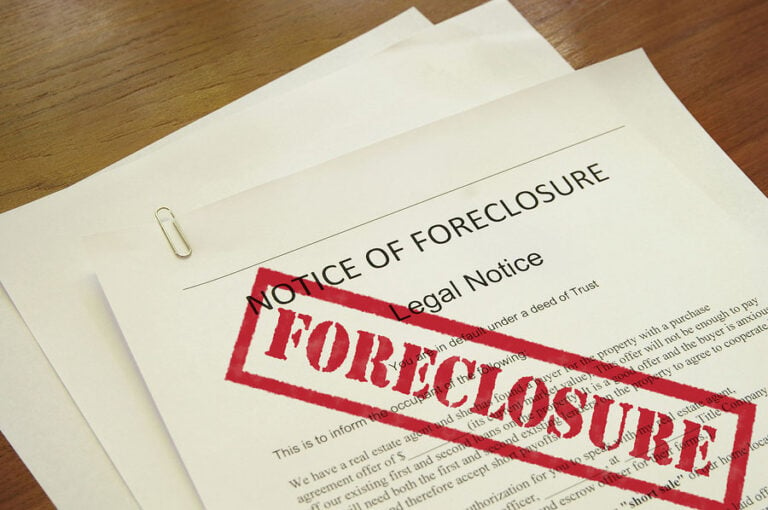How to Short Sale Your Home in California (8 Step Process)
If your house is underwater and you’re wondering how to short sale your home in California, this short sales 101 can help. The short sales process in California is lengthy and complex, which makes understanding the basics and having the skilled guidance of a real estate investor in your corner an excellent place to start.
To begin, it’s important to know that every short sale hinges on the mortgage lender authorizing and approving the sale, which means there is a considerable amount of effort involved. You should expect a short sale to take longer than a traditional sale, but it can be advantageous if you’re unable to keep up with your mortgage.
Some of the primary steps forward include gathering documentation, finding a buyer, seeking your lender’s approval, and moving forward with closing – all while adhering to the related requirements.
Table of Contents
What is a short sale in California?
What is a short sale in real estate? A short sale is simply when the homeowner’s mortgage provider allows them to sell their home or property for less than the amount that is owed on the mortgage.
Short sales are generally the result of the seller being unable to keep up with their mortgage payments and the home being worth less that what they owe on it, which is commonly called being underwater.
A successful short sale ensures that the transaction is not categorized as a foreclosure. The mortgage lender receives all the short sale proceeds, and in many instances, they don’t go after the homeowner to pay the outstanding mortgage balance. If you’re wondering how to stop foreclosure in California then this is the way to do it. A short sale is generally considered preferable to foreclosure but can still negatively affect your credit however.
Here’s how to short sale your home in California
The short sales process in California is lengthy and complex, which makes having a better understanding of the basic steps of a short sale advisable. Let’s take a closer look.
1. Qualify for a California short sale
To begin, you’ll need to qualify for a California short sale, which generally involves meeting one of the three primary requirements, including:
- You have negative equity in your home, which means the amount you owe on your mortgage is higher than the value of your home. This is often referred to as being upside down or being underwater
- You are delinquent on you mortgage. Mortgage delinquency means that you are either significantly behind on your mortgage payments or you soon will be
- you are experiencing a valid financial hardship. This means there is a significant reason that is not only beyond your control buy also interferes with your ability to make your mortgage payment
Regarding financial hardship, it’s important to understand that the hardship you are experiencing does not have to be financial. For example, a death in the family or being called up for military service may qualify. The bottom line is that – if your lender requires a hardship letter – you’ll need to put together a detailed explanation of the unique hardship you’re experiencing, which can take many forms.
2. Begin the short sale process
Once you’re ready to seek a short sale approval, you’ll reach out to your lender, and if you have the assistance of a facilitator, you’ll need to submit a signed third party authorization form. This authorizes the third party, such as a real estate investor, to discuss the matter with your mortgage provider and to access your financial documentation. Once your documents are submitted, the short sale negotiation process can begin.
3. List your house on the market
Most lenders require that a home going through the short sale process be listed on the market by a professional real estate agent. While the bank recognizes that a short sale means financial loss, it is, nevertheless, invested in the home being sold for the highest price possible, which generally requires the kind of marketing and finesse that only a local real estate professional can provide.
4. First level offer review begins
Once you receive an offer or two on your home, you’ll submit the best one to your lender by compiling the complete offer package, which should include a title bring down that proves the home has no lien holder and the preliminary settlement sheet.
This affords the lender the information they need to assess the offer in relation to their bottom line. During this first level review period, the lender will carefully asses the information you provide to ensure they have all the documentation they need.
5. Proceed to the Second Level Offer Review
Before the lender will make a decision on the offer, it will order a third-party appraisal of the home that guides the next step, which is either accepting or countering the offer that’s been made. An offer that reaches the appraisal value – or that reaches a predetermined percentage of the appraisal value – is very likely to be accepted.
The bank will naturally be interested in maximizing their net income from the sale, which involves subtracting the realtor commissions, transfer taxes, closing costs, and other expenses from the purchase price.
6. Negotiate
The mortgage lender will continue to review the short sale offer in relation to the appraisal value, and if – instead of approving the offer – they make a counter offer, negotiations will begin. If an agreement is reached, you’ll move forward with the closing, but if it’s not, you will need to go back to the drawing board – in search of a new buyer.
7. Close on the house
If you’re able to sell the house in a short sale, the last step is closing on the deal. Once you have the approval letter and the closing is scheduled, you can wrap things up by signing the closing documents at your local California settlement office.
8. If required, get help with the short sale process in California
There is a lot of room for error in the extensive short sale process, which makes it in your best interest to have a real estate expert on your side. At SoCal Home Buyers, we buy houses in Southern California, and this includes short sales. If you’re considering a short sale in California, here’s how we can help with the short sales process in California:
- Contact us at 951-331-3844 or fill out the short form below to request your fair cash offer. Note: As a specialized We Buy Houses company, we have experience with short sales, but it’s important to understand that short sales involve negotiations with the bank, and we cannot guarantee purchase in every case.
- Await our prompt response to discuss your property in greater detail and schedule a one-time inspection. Note: Short sales require a thorough assessment to determine a fair cash offer that aligns with your lender’s requirements.
- Our in-house inspector will conduct a comprehensive evaluation and provide a cash offer based on current market conditions and your lender’s guidelines. Note: Short sales involve negotiations with your lender, and the final offer amount might be subject to their approval.
- If you agree to the offer, we’ll initiate the short sale process with your lender. Note: Short sales can take longer than traditional sales due to bank negotiations, so the closing date will be subject to the lender’s approval.
Throughout the short sale process, we’ll work diligently to negotiate with your lender and facilitate a smooth transaction. While we strive to make the process as seamless as possible, it’s essential to be aware that short sales involve additional complexities and may result in varying timelines.
Contact us today to discuss your situation further and see how we can assist you with your short sale in the following areas:
- San Bernardino County
- San Diego County
- Riverside County
- Orange County
- Los Angeles County
What can delay the short sales process in California?
As mentioned, the short sale process can be lengthy, and how long the time frame you’re looking at will be depends on a variety of factors.
The type of loan involved
The kind of loan you have on your home will affect the amount of time the short sale process will take.
Federal Housing Administration Loans
Because Federal Housing Administration (FHA) loans are regulated by the federal government, the short sale process for homes with this kind of loan is exceptionally complex, and you can expect it to take considerably longer than it would for a home with most other kinds of loans. Before your FHA loan file can even be considered for a short sale, you’ll need a mortgage modification, which can add 30 days to the overall process.
Fannie Mae Loans
Fannie Mae loans include an additional step in the short sale process that involves creating an account and submitting all offers directly through a specific portal. When you work with a real estate professional, such as an investor who pays cash for homes, you can count on them to ably handle these kinds of issues.
Conventional Loans
Short sales are generally less time consuming with conventional loans, but every short sale follows its own unique path, which can be difficult to predict from the outset. When it comes to private lenders, it’s important to note that they are not backed by the government, and as a result, they implement their own practices, which can include complications of their own.
The Buyer
The buyer involved in your short sale can also slow down the process, and there are generally two primary concerns that get in the way.
Making a lowball offer
While the lending institution is well aware that short sales mean taking a financial loss, they still have requirements they expect to satisfy and will not be interested in buyers who make lowball offers that generally serve no purpose other than wasting time.
Being unprepared
When short sale offers aren’t in the right form or are incomplete, it can put the brakes on the process. Short sales are highly specific, and in order for the offer to be taken seriously and to be reviewed by the lending institution, they need to be carefully executed. Offers that are not complete or that are submitted incorrectly can seriously delay the short sale process.
The seller
When it comes to a short sale, you – as the seller – will need to be organized and detail oriented. In order to sell your home in a short sale, you’ll need to provide the lender with a considerable amount of financial documentation, which often translates to a lot of work.
Errors in any of the documents – at any stage in the process – can lead to considerable delays. Working with an experienced professional like a real estate investor is always to your advantage.
Outstanding property taxes or utility bills
While the short sale lender may cover some of your outstanding property taxes and utility bills, they are likely to put a cap on the amount they’re willing to pay. Addressing additional financial obligations like these can drag out the short sale process.
A tax lien
If you’re planning on selling a house with a lien against it in a short sale, you should know that a federal tax lien issued by the IRS must be either released or removed in order for the sale to proceed. A lien that isn’t resolved in one of these ways can but the kibosh on your short sale.
Our key takeaways on California short sales
This short sale California guide is designed to provide you with the basic information you need to move forward with a short sale, which can be good option if you can’t pay your mortgage and your home is worth less than the amount you owe on it.
Generally, both the lender and the seller prefer to avoid foreclosure, which can make the short sale process advantageous to both. The process involves selling the home for an amount that fails to cover the mortgage, but, in so doing, the lender will want to maximize their return – and the process tends to be both challenging and time consuming.
Our skilled negotiators at SoCal Home Buyers have an impressive track record of successfully guiding short sales toward beneficial resolutions. Because short sale purchases require lender approval, there are no guarantees, but we offer a simple, streamlined process that may help you obtain favorable results.
FAQs
Can you do a short sale while in foreclosure?
Yes, even if your home is already in the foreclosure process, you can seek a short sale, which can delay the foreclosure and helps you remain involved with the sale. In other words, even if foreclosure has begun, it’s not too late to discuss a short sale with your lender.
How long does a short sale stay on your credit?
Whether you sell your home in a short sale or the bank forecloses on it, your credit will take a considerable hit. Because both are categorized as not being paid as agreed, most lenders make no distinction, and you can expect your credit to be affected for seven years.
When you take out a mortgage, you agree to pay back the loan in accordance with the stipulations included, and in response, the bank puts a lien on the home you purchase. If you are unable or unwilling to keep up with your end of the bargain by making regular mortgage payments, the bank reserves the legal right to sell the property and recover on its losses.
With a short sale, the lender agrees to remove that lien and allow you to sell the home that you’re no longer making mortgage payments on, and the primary advantage is getting out from the crushing debt and moving forward toward a brighter financial future.










